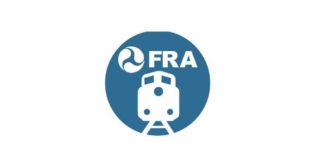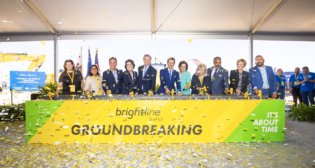
AAR “anxious” for Trump’s STB shift
Written by Nebraska Digital, administratorRegarding the Association of American Railroads Nov. 17 request that the U.S. Surface Transportation Board delay regulatory proposals until the U.S. Senate confirms a full slate of Board members appointed by President-elect Donald J. Trump, waiting until all STB vacant seats are filled could stall any further STB rulemakings until summer 2017 or later.
This is because two of the seats were created by the 2015 Surface Transportation Board Reauthorization Act to increase the STB size from three to five and have never been filled. Senate Commerce Committee Chairman John Thune (R-S.D.) is a principal author of that act, and one of his senior aides cautioned on Nov. 14 at an STB Bar Association function that Congress may not provide the STB with an increased budget to fund those new seats until sometime in 2017.
A federal fiscal year 2017 transportation-related budget has yet to be passed by the long politically fractured Congress, which more likely will extend an existing “continuing resolution” into 2017 that funds the federal government at fiscal 2016 levels. The 2016 STB budget level is almost entirely consumed by STB salaries, benefits, information technology and rent, and the STB already faces increased rent charges as it will relocate its offices early in 2017 and is in the process of updating its information technology systems. To confirm new STB members prior to a budget increase would risk not filling existing staff vacancies and/or forcing layoffs of existing staff, which would be counter productive to conducting STB business that, in many cases, has a statutory time clock attached to decision making. The current annual STB budget is some $32 million.
The purpose of the AAR demand to the STB is to prevent regulatory decision-makings on captive shipper petitions for open access, simplifying the Stand Alone Cost (SAC) test and reconsidering the formula for determining railroad revenue adequacy. In all cases, the AAR prefers the status quo. A similar demand was issued by House Republicans earlier in the week to federal agencies that either are part of the currently Democratic-led Administration or, as is the case with the STB, independent of political control. The AAR is lobbying the Trump Administration to nominate two “railroad friendly” Republicans that most likely will be confirmed by the Republican-controlled Senate. Thus, the AAR is anxious that the STB majority, now two Democrats and one Republican, shift to three Republicans and two Democrats before any further regulatory decisions are issued.
As for the FRA, a new Republican Administrator will be nominated by Trump after his inauguration on Jan. 20, but given that there are some 4,000 Presidential nominations pending, all of which require Senate confirmation, a new FRA Administrator might not take office before summer or later. Democrat FRA Administrator Sarah Feinberg will step down on inauguration day, with the agency run temporarily by an internal career employee acting as a caretaker until a new Administrator is nominated and confirmed. Here, also, the AAR intent is to delay a final rulemaking on a two-person train crew requirement, any rulemaking on electronically controlled pneumatic (ECP) brakes and further action on Positive Train Control deadlines until a new Republican Administrator is in place. Again, the AAR is lobbying for a “railroad friendly” Administrator.
Railroads seem well positioned to enjoy favorable nominations by the Trump administration. The transition team member advising on STB and FRA nominations is Norfolk Southern Vice President Robert Martinez, while another transportation team member is transportation lobbyist Martin Whitmer, whose firm has held a $130,000 annual lobbying contract from the AAR for several years.



